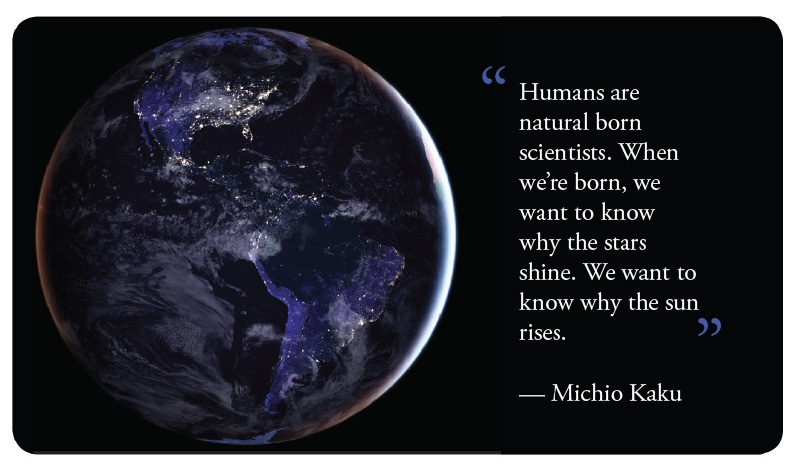Sharing Physics
Fall
2017
The Director's Space
Sharing Physics
Brad R. Conrad, PhD
 Each issue of Radiations focuses on a different facet of who we are as a community. This edition homes in on how we acquire knowledge and what it means to use knowledge. To paraphrase Michio Kaku, all humans are naturally scientists. Physicists and astronomers in particular focus on the why questions: Why are the equations of this form? Why must the wavefunction go to zero at infinity? Why do stars have the spectrum they do? We never stop questioning, growing, and expanding what we know. The universe is our laboratory. What more could we ask for?
Each issue of Radiations focuses on a different facet of who we are as a community. This edition homes in on how we acquire knowledge and what it means to use knowledge. To paraphrase Michio Kaku, all humans are naturally scientists. Physicists and astronomers in particular focus on the why questions: Why are the equations of this form? Why must the wavefunction go to zero at infinity? Why do stars have the spectrum they do? We never stop questioning, growing, and expanding what we know. The universe is our laboratory. What more could we ask for?
Many students have asked me why a physics degree is so useful, and I usually reply that it enables me to not only formulate questions but make sense of the complicated world around me. The world is messy, but that’s half the fun. This issue focuses on the idea that education and discovery happen everywhere, and an undergraduate physics education is changing to embrace this reality. Physics is deeply seated in experimentation, and part of its beauty is that we can apply the principles learned in the laboratory to the real world: by carefully examining distant starlight, by investigating the Hindenberg explosion, and by incorporating experimental or computational activities in almost any course.
Throughout my education, the most important lesson I have learned is that physics is not just scribbles on a chalkboard but something that happens every day, all the time. As trained scientists, it is our task to share what we learn and help others see the beauty in physics and sunrises. I hope this issue helps. n

